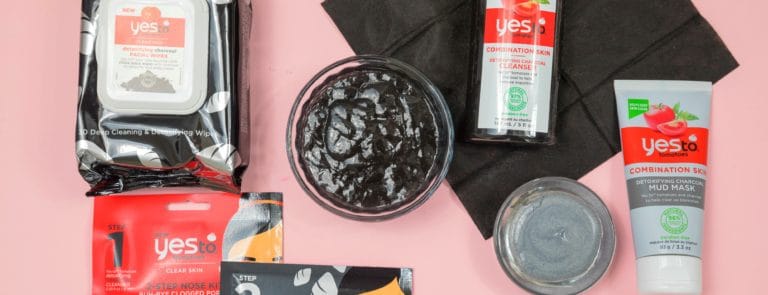15% off €25
Code:BASKET
Fish oil & other supplements for eczema

Do you want to find out about taking fish oil and other supplements for eczema? This article explains all you need to know about supplements for eczema.
Summary
1What is eczema?
Eczema is a condition that causes the skin to become itchy, dry and cracked. Atopic eczema or atopic dermatitis, is the most common form.
2How does Omega-3 help eczema?
Omega-3 fatty acids reduce inflammation by inhibiting the production of inflammatory substances, which are known to play a role in eczema.
3Other supplements that can help with eczema
There are various other supplements that can potentially help ease the discomfort of dry an itchy skin, which are among the main symptoms of eczema.
Could the decrease in our consumption of Omega-3 fatty acids be connected to the rise in itchy skin conditions? Some scientists think so.
During any given two-week period, around 8 to 9% of us will experience pruritus, or itchy skin.
Meanwhile, cases of eczema or dermatitis have reportedly more than doubled over the past three decades, and one in five of us can now expect to be affected by a skin rash at some point in our lives.
What is eczema?
Eczema is a condition that causes the skin to become itchy, dry and cracked.
Atopic eczema or atopic dermatitis, which it’s also referred to, is the most common form.1 Atopic eczema tends to be more common in children, often developing before their first birthday. But it’s also possible for people to experience it for the first time in adulthood too.
It’s usually a long-term condition that can significantly improve or even clear up completely over time. Some children completely outgrow it.
Common symptoms of atopic eczema include itchy, dry, cracked and sore skin. It most frequently develops on people’s hands, inside their elbows, on the back of their knees and, in the case of most children, on their face and scalp.
Eczema treatments include topical medicated creams, UV phototherapy, oral medication, including steroids and immunosuppressive drugs.2
Summary
Eczema is a skin condition that affects adults and children, causing itchy, dry and/cracked skin.
Atopic eczema is the most common form of eczema and is usually a long-term condition.
How does Omega-3 help eczema?
Itchy skin tends to result from an inflammatory response to something the body believes is an allergen or irritant.
Omega-3 fatty acids reduce inflammation by inhibiting the production of inflammatory substances, such as leukotriene B4, which are known to play a role in eczema.
Omega-6 fatty acids, on the other hand, tend to promote inflammation.
Consuming too much Omega-6 and too little Omega-3 can throw us off balance, increasing our susceptibility to inflammatory skin conditions.
People with eczema tend to have significantly lower levels of the Omega-3 fatty acids, EPA and DHA, in their systems.
However, taking Omega-3 supplements can help reduce inflammation and improve symptoms of itchy skin by up to 25% over eight weeks.
Summary
Omega-3 can potentially help ease eczema by preventing inflammatory substances, such as leukotriene B4, from being produced.
Other ways Omega-3 helps with itchy skin
- Itching and immunity
Itchy skin sometimes results from an allergic or autoimmune reaction in which the body mistakes a harmless substance or element of its own tissue for a toxin, triggering a defensive inflammatory response.
Omega-3 appears to protect against a wide range of autoimmune disorders.
Furthermore, children whose mothers took fish oil supplements while pregnant and breastfeeding are less likely to develop eczema or allergies.
Handpicked content: What skincare is safe to use during pregnancy and while breastfeeding?
- Repair and rebuild
Itchy skin conditions are also associated with defects in the skin’s barrier function.
Omega-3 supplements may help to repair and rebuild skin-cell membranes, enhancing the skin’s capacity to repel toxins and expel waste products: a soothing prospect.3
- Moisture and irritants
Research has found Omega-3 can improve the skin’s ability to lock in moisture and keep irritants at bay.
According to one study in particular, women who consumed around half a teaspoon of Omega-3-rich flaxseed oil every day experienced a 39% increase in skin hydration after 12 weeks.
Their skin was also less rough and sensitive than that of those in a placebo group.4
Summary
Omega-3 can reportedly help alleviate itchy skin in several ways that range from providing protection against autoimmune disorders and repairing and rebuilding skin cells, to improving skin moisture levels and repelling toxins.
Two interesting Omega-related facts for you…
- Fact - we are consuming less Omega-3 fatty acids. This surge in the incidence of itchy skin conditions is believed to have coincided with a decrease in our consumption of Omega-3-rich oily fish. There may also be a link between the boom in veganism and vegetarianism.
- Fact – we are consuming more Omega-6 fatty acids. At the same time, we’re eating more processed foods that are laden with Omega-6 fatty acids.
How to use Omega-3 for eczema and other skin conditions
If you want to up your Omega-3 levels to help manage the symptoms of eczema or other skin conditions, there are several ways you can go about it.
The most common options involve making sure you’re getting more Omega-3 fatty acids into your system, which is usually done by doing one or more of the following:
1. Eating more Omega-3-rich foods
Omega-3 can be found in an abundance of food, either naturally or because the food has been fortified with these valuable fatty acids.
It’s possible to get enough Omega-3, simply through diet alone.5
There aren’t currently any recommended daily intake amounts for Omega-3 fatty acids, except for ALA, which is one of the main three Omega-3 fatty acids, alongside docosahexaenoic acid (DHA) and eicosapentaenoic acid (EPA), which are mainly present in fish and other seafood. ALA is mainly found in plant oils, such as flaxseed, soybean, and canola oils.
The recommended guidance levels for ALA are:
| Age | Recommended amount of ALA |
|---|---|
| Birth - 12 months | 0.5g |
| 1 - 3 years | 0.7g |
| 4 - 8 years | 0.9g |
| 9 - 13 years (boys) | 1.2g |
| 9 - 13 years (girls) | 1.0g |
| 14 - 18 years (boys) | 1.6g |
| 14 - 18 years (girls) | 1.1g |
| Men | 1.6g |
| Women | 1.1g |
| Pregnant teens and women | 1.4g |
| Breastfeeding teens and women | 1.3g |
Food that contains Omega-3 fatty acids:
- Fish and other seafood - particularly cold-water fatty fish, such as salmon, mackerel, tuna, herring and sardines
- Nuts and seeds - such as flaxseed, chia seeds and walnuts
- Plant oils - such as flaxseed oil, soybean oil and canola oil
- Fortified foods - such as certain brands of eggs, yogurt, juices, milk, soy beverages and infant formulas
2. Taking Omega-3 capsules
Plenty of research has been carried out into the effect of Omega-3 supplements for eczema, and initial studies have reported positive results. However, research is still limited at this stage.6
According to a review that was carried out in 2012, which included three studies on fish oil supplements for eczema, fish oil was found to improve the quality of life and reduce itchiness for people who had eczema.
Meanwhile, another study of people with moderate to severe eczema reported that supplementing daily with Omega-3 fats for 16 weeks, along with Omega-6 fats, zinc, Vitamin E, and a multivitamin, reduced eczema severity by more than 50% in over 80% of participants.
As for Omega-3 supplements, they’re mainly available in soft gel capsule form. You can take Omega-3 fish oil capsules in various different concentrations, ranging from 1,000mg to 1,200mg, 1360mg, and upwards.
It’s also possible to take Omega-3 combined with Omegas-6 and 9, as well as several other omega-boosting combinations.
Certain manufacturers also produce Omega-3 capsules specifically for children and teenagers, such as Haliborange, not just for adults.
It’s also believed that women who take fish oil supplements while pregnant may help prevent their child from developing eczema.7
In one study, pregnant women supplemented daily with 1.6 and 1.1g of EPA and DHA, respectively, from the 25th week of pregnancy through and 3 to 4 months of breastfeeding, on average.
The results showed that babies of mothers who took the supplement had a 16% lower risk of eczema during their first year of life, compared with a control group.
3. Taking Omega-3 oil
While some people may prefer taking Omega-3 capsules because they’re quicker and easier to take, and they also find the fish flavour easier to handle, capsules aren’t the only way to increase your Omega-3 intake.
Various Omega-3 oils – pure liquid, high strength and Omega-3, 6 and 9 blends – are all available from brands, including Paradox, as well as our range of cod liver oils.
The recommended daily dosage for adults is typically around 5ml for adults and 2.5ml for children (aged between 5 and 15).
You can either swallow these oils neat or mix them with milk, orange juice or another drink of your choice to help disguise the flavour.
Summary
There are various different ways you can increase your Omega-3 levels.
It’s possible to get all the Omega-3 you need from your diet, or you can take supplement capsules or liquid oil.
Other supplements that can help with eczema
Aside from taking an Omega-3 supplement for eczema, there are various other supplements that can potentially help ease the discomfort of dry an itchy skin, which are among the main symptoms of eczema.
These supplements include:9
- Vitamin D
Some research has linked low Vitamin D with skin conditions, including eczema and psoriasis.10
- Collagen
Some research has shown that taking collagen-based supplements may have a range of benefits for skin, including decreasing wrinkle depth and increasing skin hydration.11
However, more research on collagen’s connection with helping with conditions, such as eczema, is still required.
- Vitamin C
Studies have shown that increasing dietary Vitamin C through vitamin C supplements may support many factors of skin health, including skin hydration.12
Summary
There are several other supplements, other than Omega-3 that can have a beneficial impact on eczema, including Vitamins C and D and collagen.
A final few words about Omega-3 and eczema…
Lots of research has found that there may be a link between Omega-3 supplements and eczema.
There are various different ways you can increase your Omega-3 levels, from eating a diet that’s richer in Omega-3 food, to taking soft gel capsules or a spoonful of oil every morning.
Those Omega-3 fatty acids are reportedly responsible for all sorts of eczema-alleviating actions, from preventing the synthesis of leukotriene B4, to helping skin cells grow and supporting moisture retention levels.
Last updated: 13 August 2021
- https://www.nhs.uk/conditions/food-allergy/
- https://www.nhs.uk/conditions/food-allergy/
- https://www.healthline.com/nutrition/omega-3-benefits-on-skin-and-hair#3.-May-guard-against-dry,-red,-or-itchy-skin
- https://www.healthline.com/nutrition/omega-3-benefits-on-skin-and-hair#3.-May-guard-against-dry,-red,-or-itchy-skin
- https://ods.od.nih.gov/factsheets/Omega3FattyAcids-Consumer/
- https://www.healthline.com/nutrition/fish-oil-for-eczema#effectiveness
- https://www.healthline.com/nutrition/fish-oil-for-eczema#effectiveness
- https://www.verywellhealth.com/fish-allergy-and-omega-3-supplements-1324477
- https://www.healthline.com/nutrition/vitamins-for-dry-skin
- https://www.ncbi.nlm.nih.gov/pmc/articles/PMC4470215/
- https://www.ncbi.nlm.nih.gov/pmc/articles/PMC6835901/
- https://www.ncbi.nlm.nih.gov/pmc/articles/PMC5579659/
The advice in this article is for information only and should not replace medical care. Please check with your GP or healthcare professional before trying any supplements, treatments or remedies. Food supplements must not be used as a substitute for a varied and balanced diet and a healthy lifestyle.



